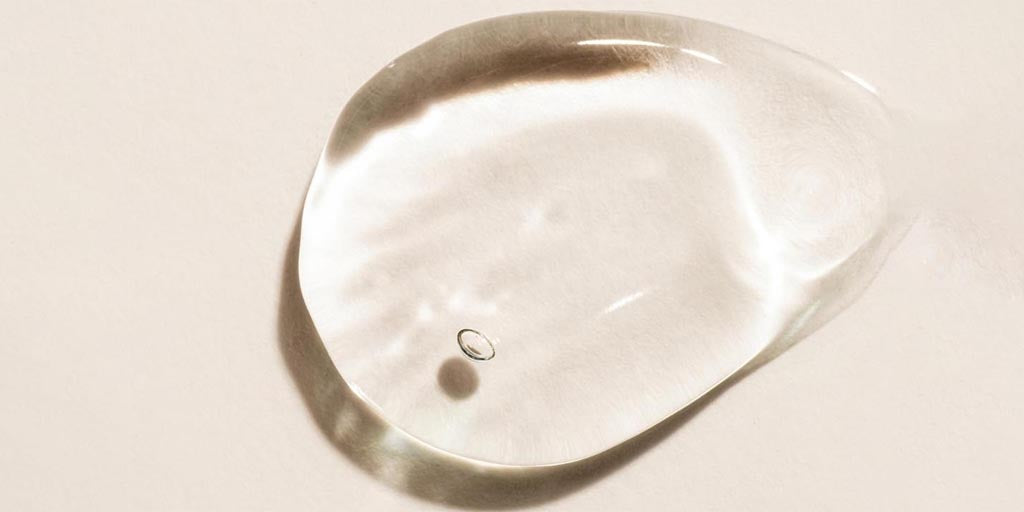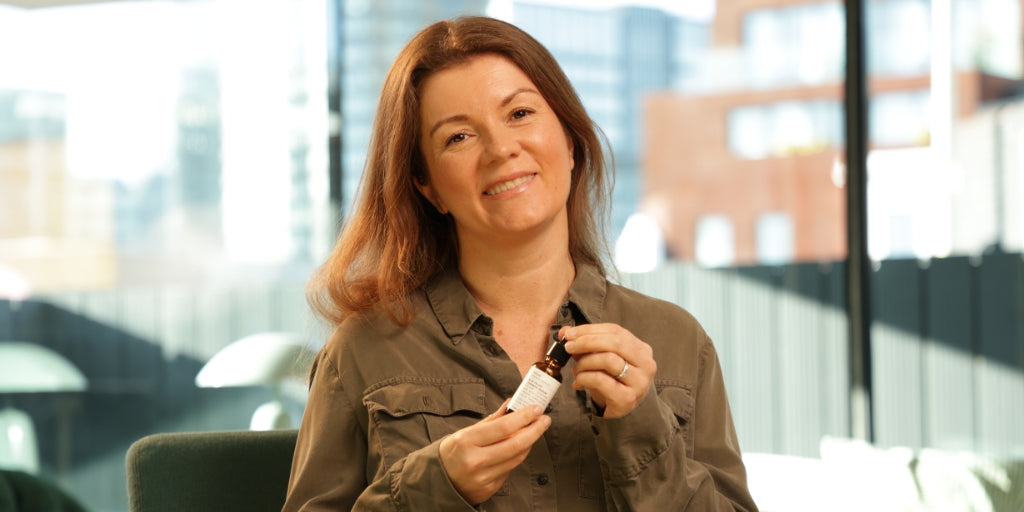Salicylic acid is a naturally occurring substance that's been used for centuries as a traditional home acne treatment. It's a go-to ingredient now commonly found in acne treatments and facemasks, as it has significant acne-fighting properties. But what exactly is it and why should you use it? Read on to find out.
What is salicylic acid?
Salicylic acid is a type of beta-hydroxy acid (BHA) that is derived from willow bark, it has been used for centuries to treat acne and many other skin conditions. It works to remove dead skin cells—breaking down oils and debris trapped within pores—allowing these blockages to be removed from your complexion with ease. In addition, salicylic acid reduces the appearance of acne scars by speeding up cell turnover rate, keeping acne-prone skin clear and healthy. Known for its gentle yet effective properties, it is no surprise why this potent ingredient continues to reign supreme in acne treatment regiments around the world.

What is a Beta hydroxy acid (BHA)?
A BHA is an incredibly natural and effective way to treat acne. This natural acid helps to reduce redness, swelling, and irritation from acne breakouts by maintaining the pH balance of the skin. It also works to exfoliate dead skin cells and unclog oil-filled pores. In addition, BHAs make a great natural moisturizer; they help trap water in the deeper layers of your skin for much longer than traditional moisturizers. And because it’s natural, it is gentle enough to be used both night and day with minimal side effects. All of this makes BHAs a powerful natural solution for treating stubborn acne.
What are the benefits of salicylic acid?
There are a lot of benefits of salicylic acid. With their natural exfoliating properties, beta hydroxy acids like salicylic acid help to remove dead skin cells, giving skin a smoother, brighter complexion.
It also has anti-inflammatory properties that can help to soothe irritated and acne-prone skin. Whether you suffer from occasional breakouts, mild acne or oily skin, salicylic acid works by helping to reduce acne and giving you clearer, healthier-looking skin.
Furthermore, as it is oil soluble (unlike alpha hydroxy acid which is water soluble) it penetrates deep within the pores allowing it to absorb oil and unclog them effectively. These benefits make it an appealing natural alternative to over the counter chemical treatments which can be harsher on the skin over time.
Removes dead skin cells
It acts as a chemical exfoliator, which means it smoothens out any rough spots on the skin. As well as removing dead skin cells, it also helps to prevent future breakouts by keeping pores clear and absorbing excess sebum.
Targets whiteheads and blackheads
Salicylic acid works by loosening the build-up of dead skin cells and oil that can block pores. Because it's natural and gentle, it can safely be used as a daily prevention against whiteheads and blackheads.
Fights inflammation
This powerful ingredient has natural anti-inflammatory properties that work to reduce skin irritation and redness associated with acne breakouts. Thanks to this natural acne treatment that packs a punch, inflammation from those pesky pimples has no chance!
Reduces sebum secretion
It works to reduce sebum secretion. It works by dissolving into the natural oils of your skin, which in turn minimizes the natural production of natural oils found on our face known as sebum.
Sebum is what gives our complexion its natural shine, so when it reduces its natural production, it helps to decrease oil production. This results in fewer breakouts and blemishes for a more clear complexion. Even better, these beneficial effects are long-lasting, allowing you to have clear skin for an extended period!
Acne treatments
This natural compound can treat acne and improve skin clarity. As it is oil soluble it can penetrate deeper beneath the skin's surface to target existing breakouts while keeping future blemishes at bay by reducing acne-causing bacteria.
The great thing about it is that it's gentle enough for all skin types and won't strip away natural oils like a harsher acne treatment. Incorporating this natural remedy into your skincare routine can help to treat acne for a clearer complexion.
Can salicylic acid cause more acne?
In some cases, people may find that it causes their acne to become worse before it gets better. This can happen as part of the natural process - for it to work, it needs to loosen old cells on the surface of your skin first. As this happens, these cells blend with other natural oils and build up on your skin, leading to more acne. If this does occur, you should continue using it as it will eventually help reduce the overall number of breakouts.
Is it okay to use salicylic acid every day?
When it comes to natural acne treatments, it is one of the most popular and effective options out there. While its use has been a long-standing choice for many, the question of its everyday usage remains. Depending on your unique skin type and what you are expecting from the results of using it, daily application may be beneficial in some cases.
For example, if your goal is to reduce excess oil and keep any existing breakouts under control, a once or twice-a-day application might be ideal. Just make sure to find a formulation specifically designed for facial use that won't cause skin irritation or an allergic reaction when used regularly.
How long does it take for salicylic acid to work on acne?
Salicylic acid is an extremely effective acne-fighting solution and generally begins to show improvements within a few days of use of a salicylic acid based product. The time it takes for it to work varies from person to person, but results can be expected from consistently applying the acid over a discreet period. This natural treatment is sure to get you the smooth, blemish-free complexion you are looking for!
Can you use salicylic acid with vitamin C?
When used together, Salicylic acid and vitamin C can be a powerful combination to create clear, healthy-looking skin. It works by attacking bacteria and helping reduce inflammation, while vitamin C is thought to help lighten areas of discolouration.
By enabling both skincare products to work together, you may see quicker results with fewer side effects than either ingredient alone would typically provide. Therefore, combining salicylic acid with vitamin C can be a gentle, natural way to brighten your complexion and improve blemish-prone skin.
Salicylic acid targets whiteheads and blackheads
It's great for deep exfoliation, as it's able to penetrate the skin to clear out any dead skin cells and debris clogging pores. It provides the skin with an even radiance while softly getting rid of those pesky imperfections caused by whiteheads and blackheads. Additionally, it can help reduce the appearance of lingering marks from breakouts since it helps increase cell turnover.
Salicylic acid versus benzoyl peroxide
Over-the-counter acne treatments have come a long way: natural blemish treatments are now widely available, allowing people to easily find the right treatment for their skin.
Both compounds work in different ways to clear up existing breakouts, but salicylic acid is typically better for those with sensitive skin. It dissolves the gunk deep down while exfoliating the surface of your skin.
Benzoyl peroxide kills bacteria on contact, making it great for treating moderate to severe acne. Its downside is that it can be drying and harsh, so start small if you're feeling hesitant about using it. Consider trying a natural treatment like salicylic acid first rather than chemical peels!
Does salicylic acid remove dark spots?
Salicylic acid helps break down surface oils and dead skin cells that contribute to discolouration. To use a salicylic acid treatment on dark spots, you can apply it directly to the skin. Be sure to follow package instructions for best results; after a few weeks of regular application, you may begin to notice the dark spots fading away.
Does salicylic acid brighten skin?
Salicylic acid can also help even out complexion, unveiling lighter and brighter skin tone. Many users of this natural treatment attest to its gentle yet effective results: it fades away pigmentation and scars as well, giving you a glowing complexion without harsh or irritable side effects. Ultimately, salicylic acid is an affordable option that can be used with confidence to achieve natural brightness from within!
Are there any risks associated with using too much salicylic acid
Salicylic acid can lead to dryness or even possible irritation if used in too high of a concentration or too frequently. It’s always recommended to use it sparingly and follow up with a moisturizer afterwards to ensure your skin stays hydrated and healthy. If you do develop any negative reactions from using it, make sure to stop use immediately and seek medical attention.
Side effects of salicylic acid
Despite its natural origins, salicylic acid can still cause some mild side effects when used over long periods. Common side effects include dryness, redness, and irritation of the skin. As with any natural product, it is important to understand these potential risks before choosing this product for daily use. Overall, these natural remedies can offer an effective and gentle solution to addressing blemishes without lasting damage or harm.
How to find the right product that contains salicylic acid for your skin type
Finding the right product with salicylic acid that meets your needs doesn’t have to be complicated. Start with knowing what type of blemishes you are dealing with, and make sure to look for a product suited for your skin type and do a patch test first to see how your skin reacts.
Oily and blemish prone skin
Look for a salicylic acid serum formulated with salicylic acid. It works best to unclog pores in these skin types. 93% of respondents trying our Salicylic acid rescue serum saw an improvement in their blemishes.

Dry skin
You should use a salicylic acid toner combined with a moisturizing cream as it helps unclog pores without too much stripping away of natural oils. The key is finding the right balance that suits you so you can start natural blemish treatment today! Our Liquid Radiance Glycolic toner contains both glycolic acid and salicylic acid and it is suitable for all skin types including sensitive and dry.

How can you use salicylic acid in your skin care routine

To incorporate this natural powerhouse into your skincare routine, start by using a gentle soap-free cleanser once or twice daily to gently cleanse and unclog your skin. Follow up with a salicylic acid-containing serum and then an oil-free moisturizer to replenish any lost moisture caused by the exfoliation process. Salicylic acid can be a great addition to any natural skincare regimen designed to help keep your skin looking healthy!
Tips for using salicylic acid safely and effectively
Before using any product containing salicylic acid, it is important to read the label closely to find out what percentage of salicylic acid it contains. This will help you determine how often and how much of the product you should use. Start with a small amount, gradually increasing if needed.
Avoid using it near the eye area
You should avoid using salicylic acid products near your eyes as well as avoiding products that might mix, such as products containing retinol or benzoyl peroxide.
Sun exposure
Make sure not to stay in the sun for too long after applying - sun exposure could irritate the skin more than usual due to the active ingredient in the product.
Salicylic acid can be a great choice for those looking for an alternative to harsher chemical acne treatments. It is a natural exfoliant that works deep within the pores, making it an ideal solution for clogged pores and blemishes. If you're looking for a bright, smooth complexion naturally, give salicylic acid a try today. Shop now to see our products with this amazing ingredient!





